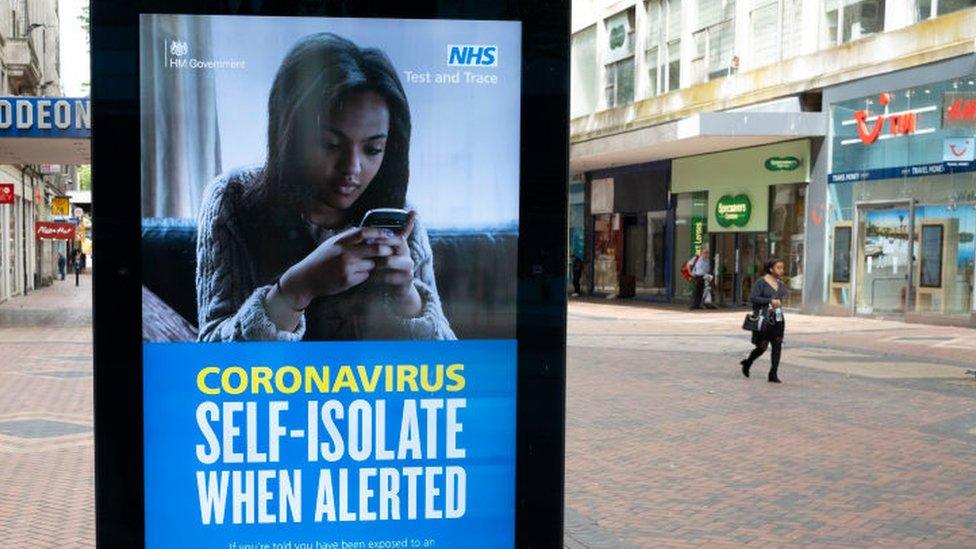Coronavirus: What is it like to be contact traced?
- Published
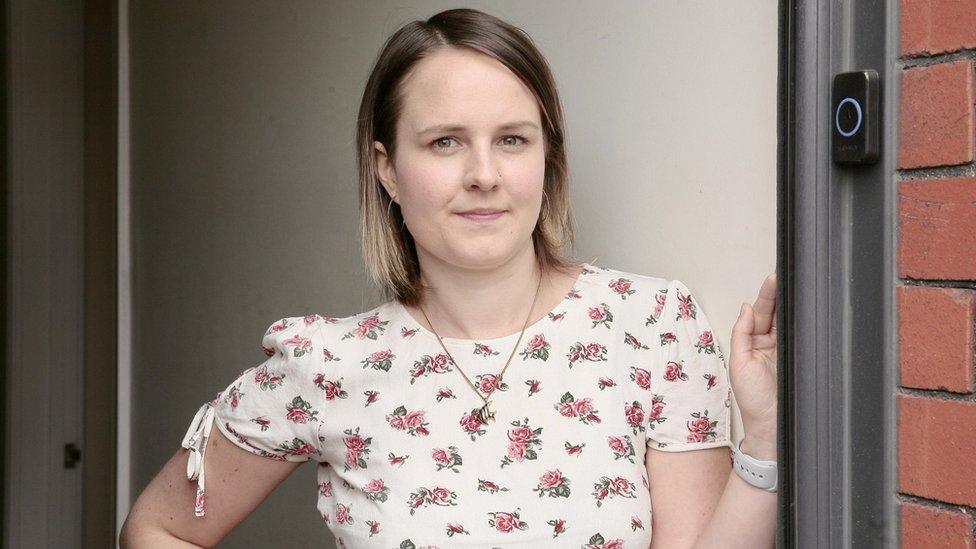
Journalist Emilia Davies was alarmed to get a call from contact tracers
It was a Thursday afternoon when my phone started to ring. I was working and didn't recognise the number so let it go to voicemail.
After about half an hour, I listened back to the message.
It was Vanessa - not her real name - from the Cardiff and Vale contact tracing team.
"I'm wondering if you could give me a call back please?" she said.
I was slightly alarmed when I heard the message, but had an idea why she was calling.
A few days earlier I had met a friend in her garden who I hadn't seen for months.
We maintained social distancing throughout, but the day after we met, she told me she had developed a slight cough and was getting tested as a precaution.
The following day she lost her sense of taste and smell. It was at that point I was sure she had contracted the virus.
That evening, when I got a call from her to say she had tested positive, my heart sank.
Firstly, I was worried about her. Secondly, I wasn't sure what to do.
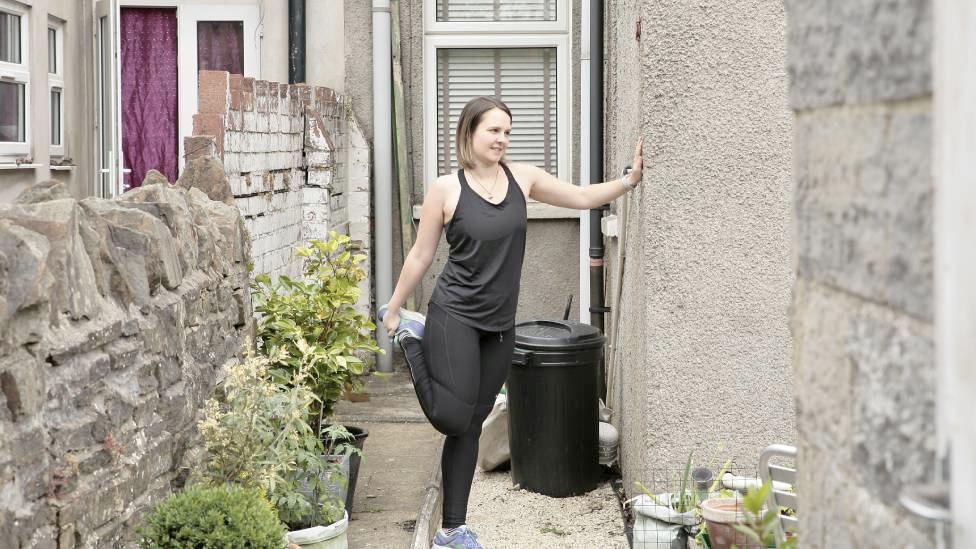
Millie had recently signed up for a virtual marathon when she was called by the contact tracer
After some Googling, I started self-isolating and two days later, I received the answerphone message from Vanessa. She called again later that afternoon.
When I had met up with my friend, we had made sure that we had maintained social distancing but when she started feeling ill, she gave my details to the contact tracing service as a precaution.
When I spoke to Vanessa, she explained why she was calling and told me everything I said on the phone was confidential.
I had to confirm my name, date of birth and address. She asked how I was feeling and whether I had any of the three main symptoms - cough, high temperature, loss of sense of taste and smell - none of which I had.
She asked whether there was anyone else living in my house and gave me some guidance on how to avoid cross-contamination if I did have the virus, such as washing hands frequently, using separate towels and not touching my face.
I was then advised to self-isolate for 14 days, as it can take that long for symptoms to appear.
That would mean not allowing visitors into the house and asking friends and family to drop off food or medicine outside if needed.
"Have you got any questions?" I remember her asking.
I didn't. The thought of self-isolating for 14 days seemed like a long time, considering I would describe myself as an active person. I had just signed up to a virtual marathon - now on hold.
But I knew I would not want to risk passing the virus on to anyone if I had it.
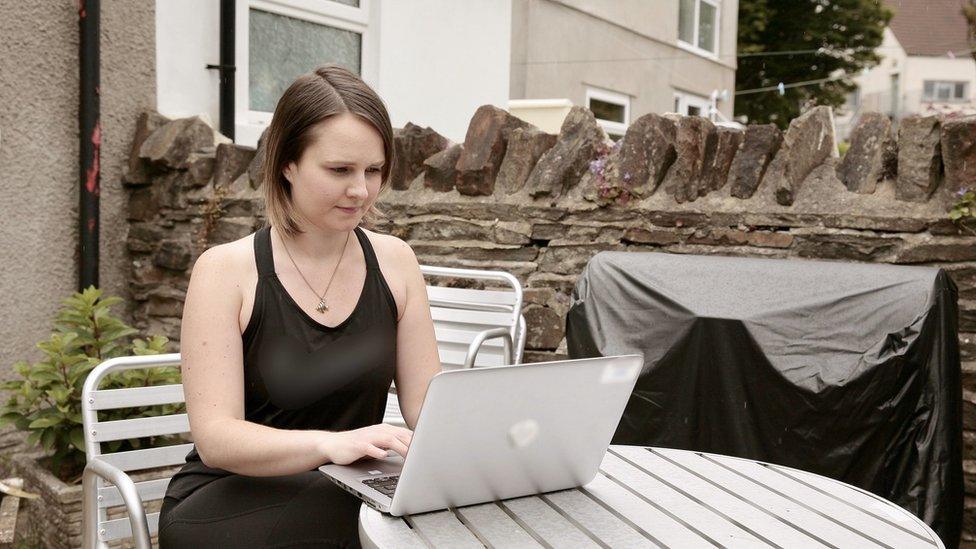
Millie was told to self-isolate for 14 days in case she became ill
Since then, I've signed up to some online fitness sessions, done about a million squats and used my garden to get fresh air. I'm also able to work from home.
I'm now more than halfway through isolating and Vanessa or another call handler rings me every day to check up on me - I've also been given a number to call in case I do get symptoms.
The call handlers have all been friendly. Once this is over, I think I'll actually miss them!
I'm also pleased to say my friend has since recovered and is doing well.
- Published5 June 2020
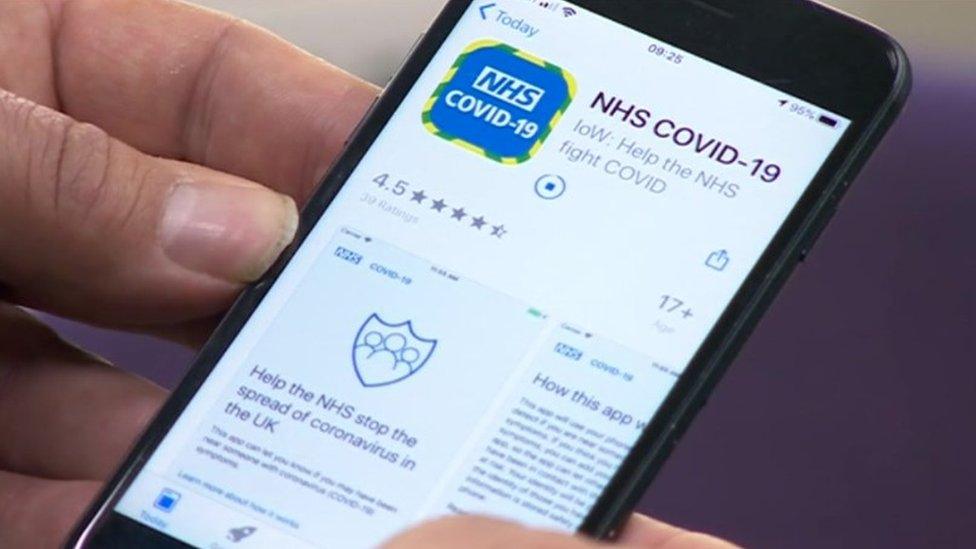
- Published20 May 2020
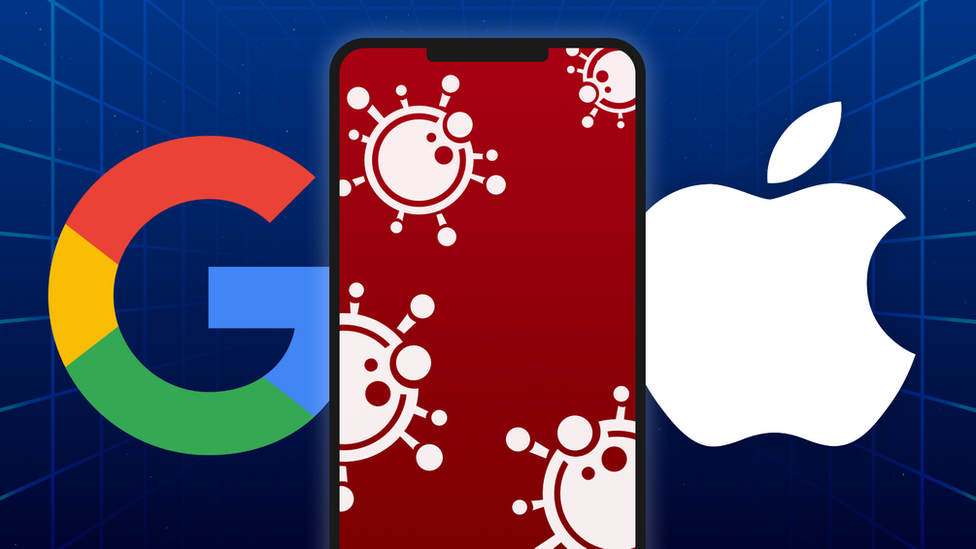
- Published11 June 2020
